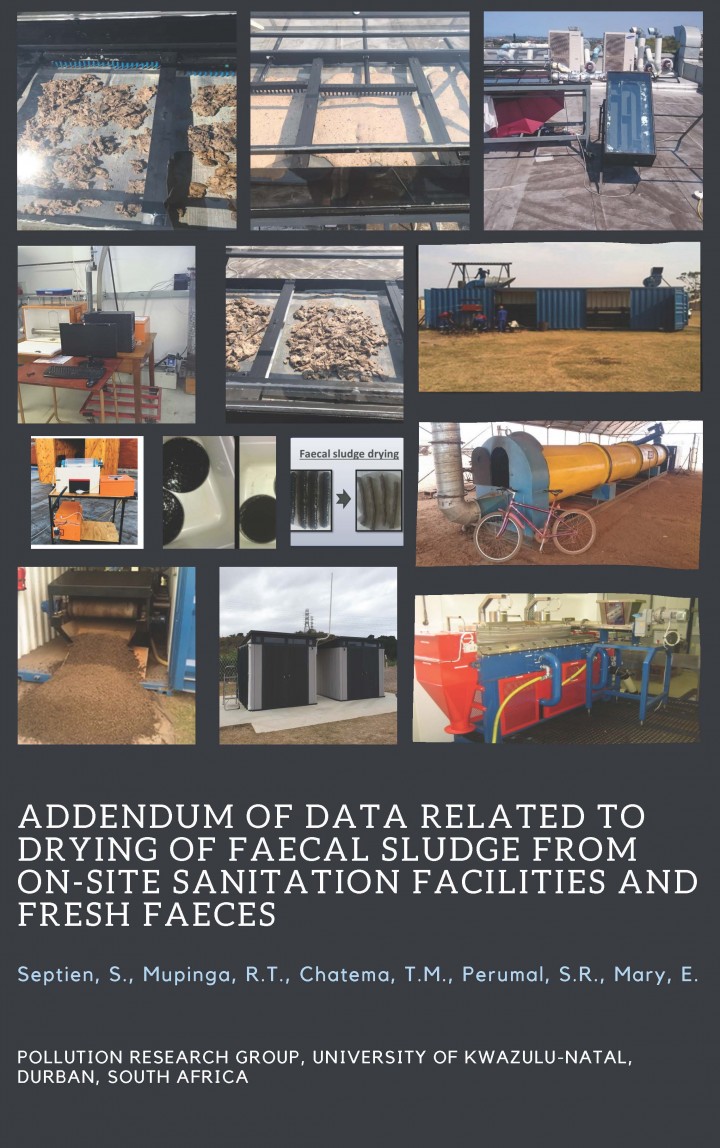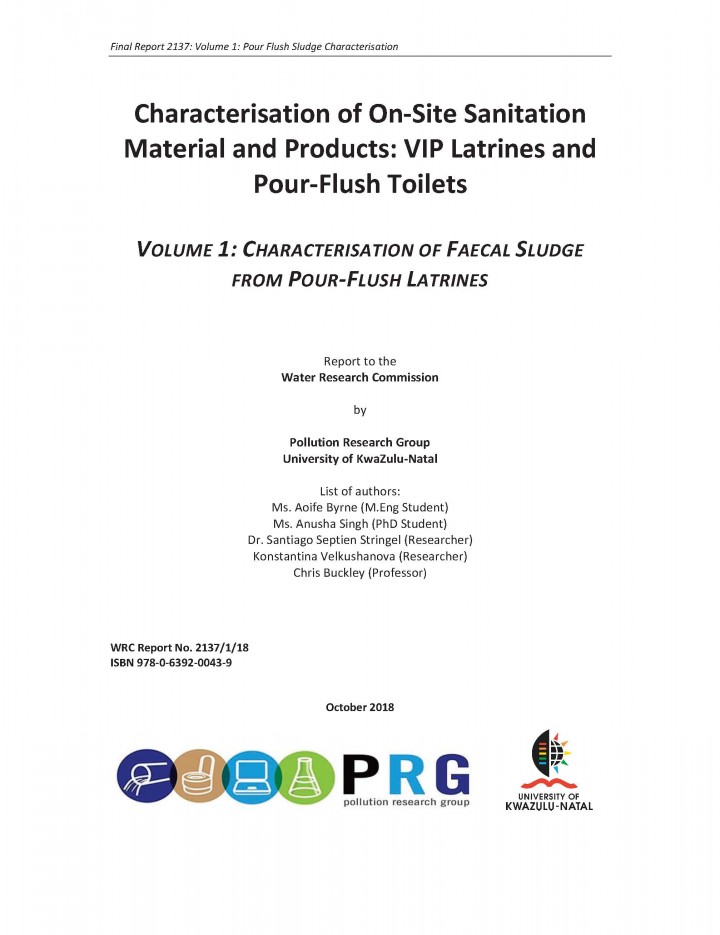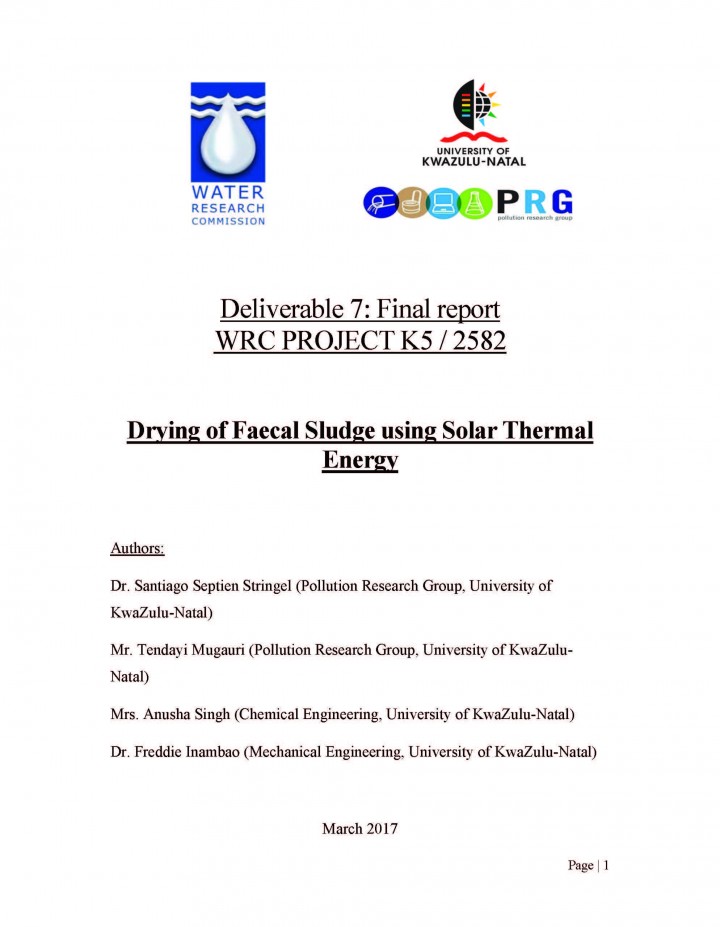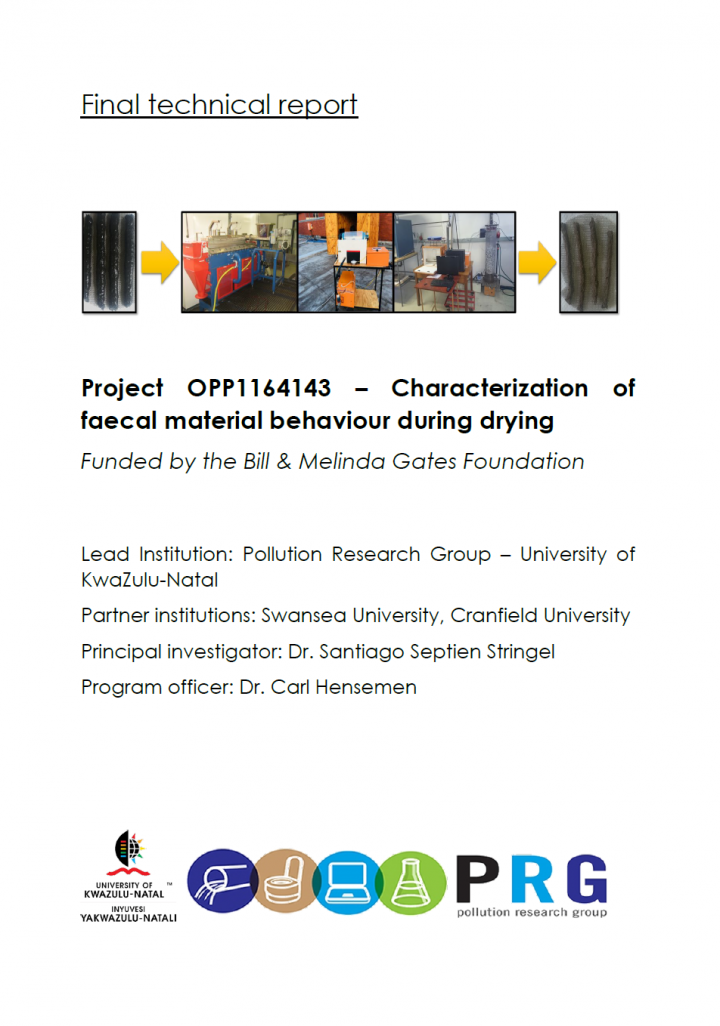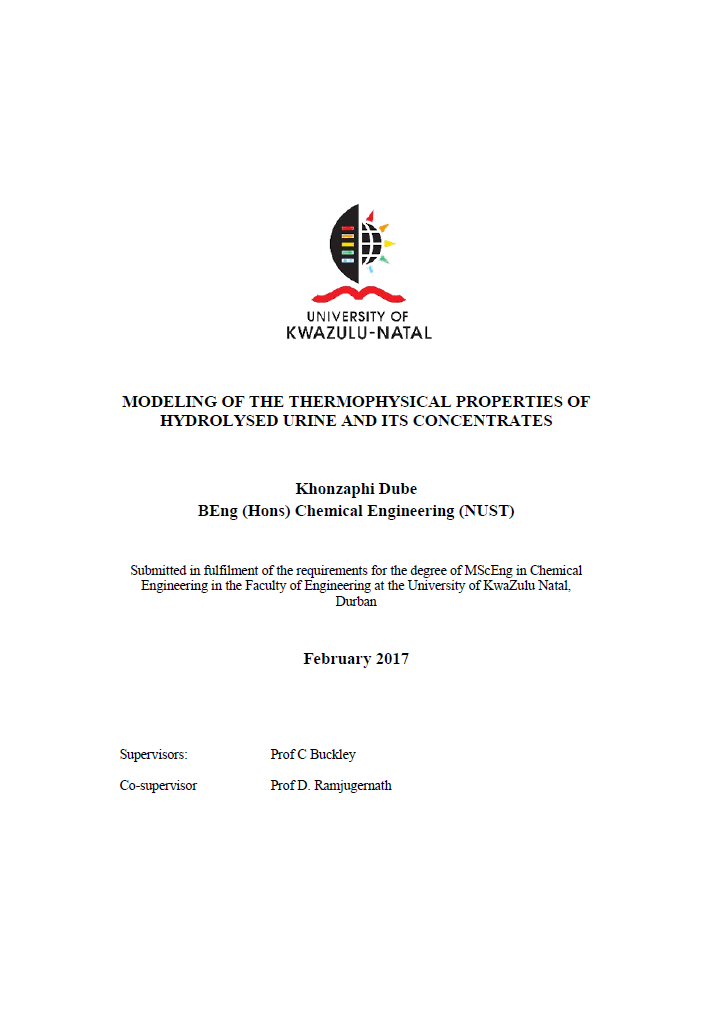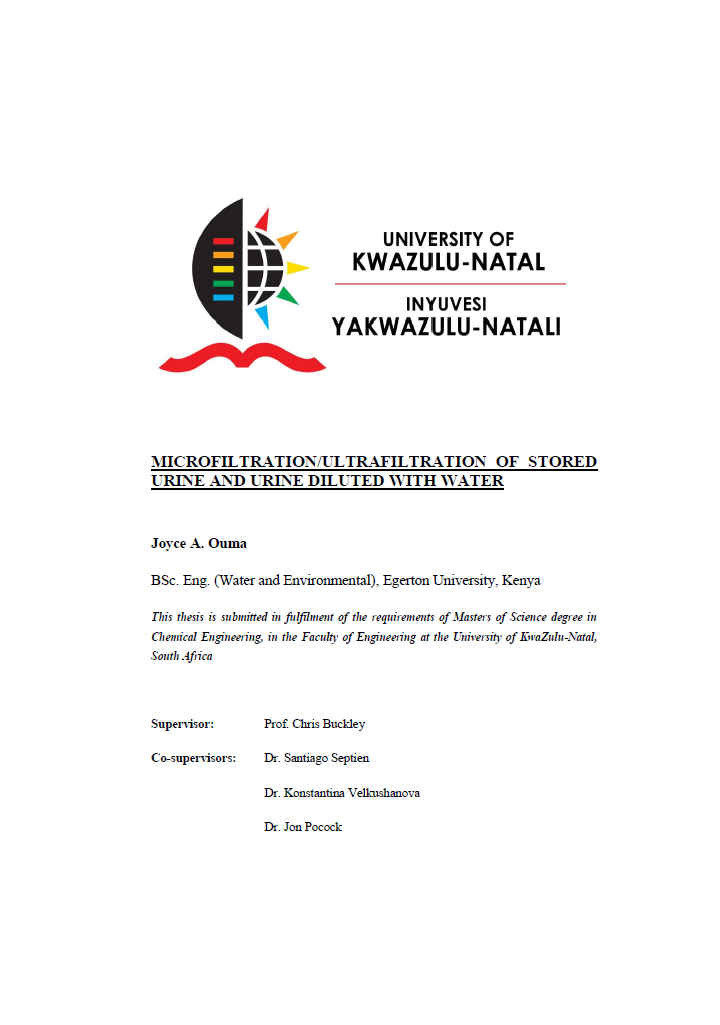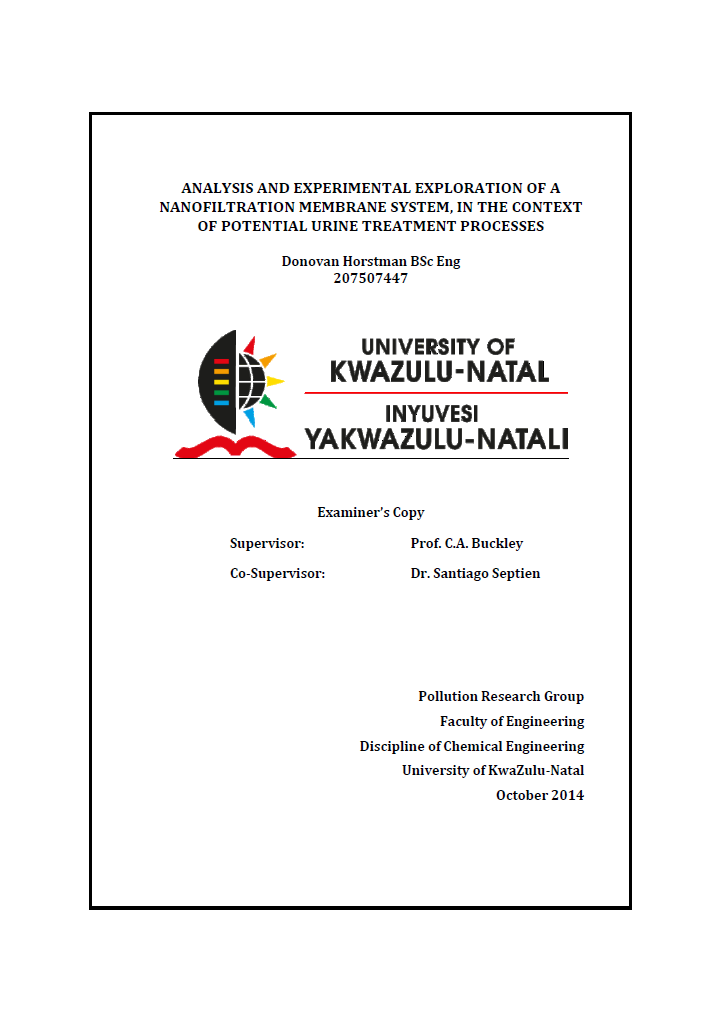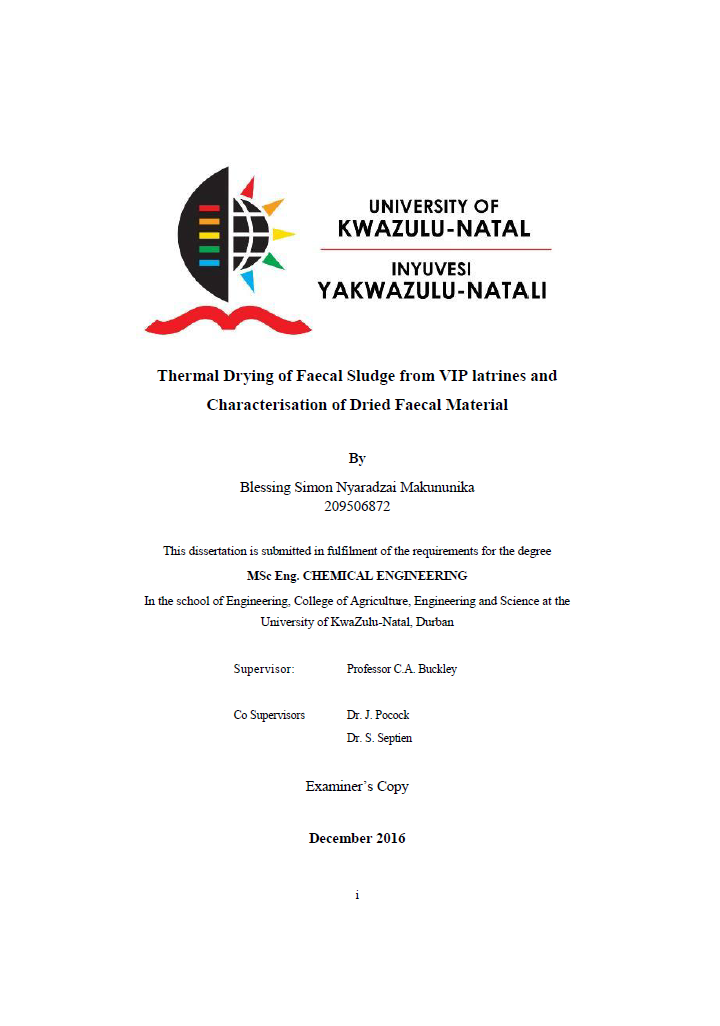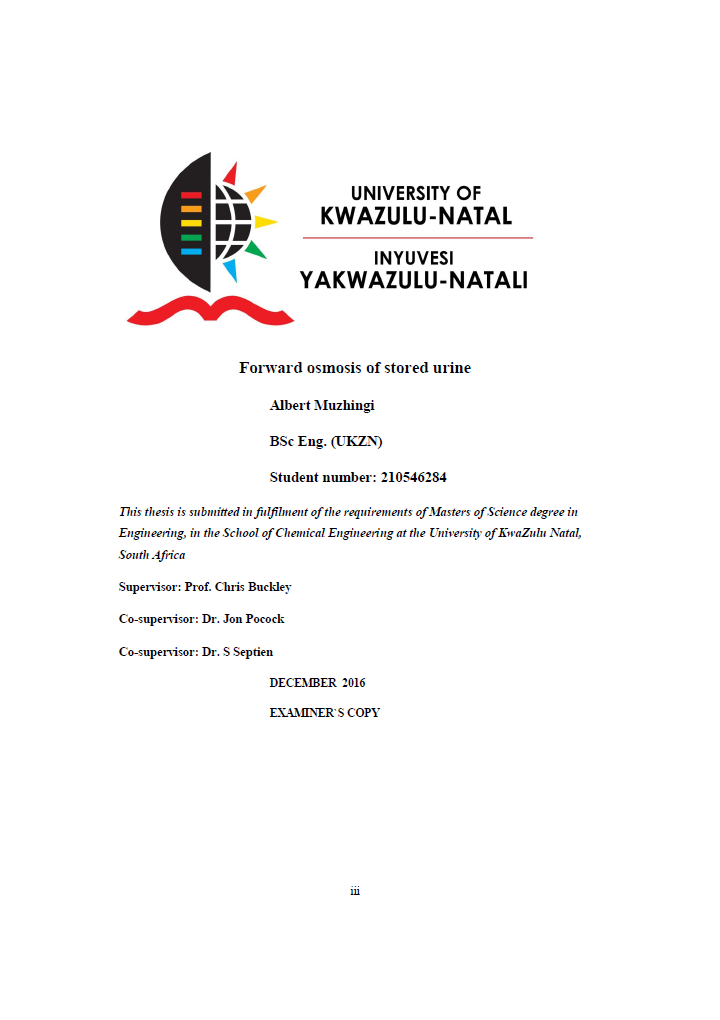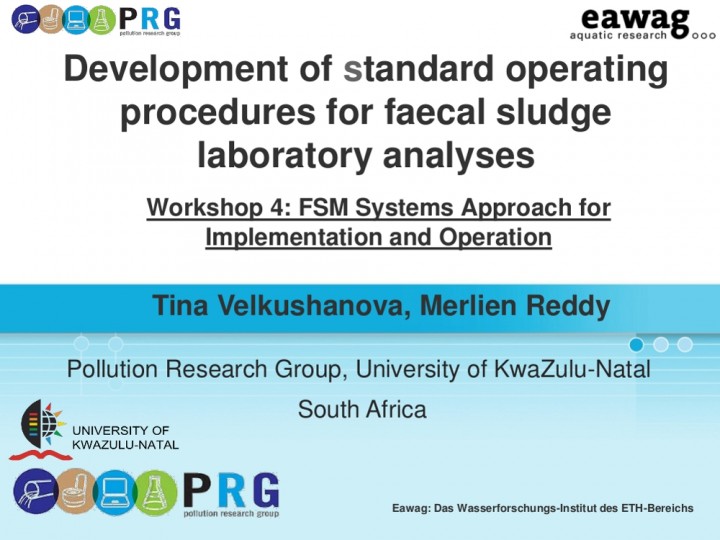
The University of KwaZulu-Natal was formed on 1 January 2004 as a result of the merger between the University of Durban-Westville and the University of Natal. The new university brings together the rich histories of both the former Universities.
VISION:
To be the premier university of African scholarship.
MISSION:
A truly South African university that is academically excellent, innovative in research, critically engaged with society and demographically representative, redressing the disadvantages, inequities and imbalances of the past.
Countries of activity
Location of projects and headquarters
Projects in SuSanA database: 7
2017 - 2020
Support for ongoing prototype testing platform
To support field testing of sanitation system prototypes being developed for deployment in developing countries
During 2017, four reinvented toilet prototypes will undergo engineering testing in Durban, South Africa. The prototype Engineering Field Testing (EFT) program aims to conduct engineering testing of a number of toilet systems in the field in order to assess feasibility, durability and robustness in an actual community rather than in laboratory …
2016 - 2018
Standard Methods for the Analysis of Faecal Sludge
To produce a publication that will provide researchers and practitioners worldwide with consistent and comparable faecal sludge field and laboratory methods
The importance of understanding the characteristics of faecal sludge is emphasised as an emerging issue of Faecal Sludge Management. The lack of standardisation complicates the transfer of knowledge and data between different regions and institutions as the results may not be comparable. The current situation raises the need to establish common …
2016 - 2018
Characterization of faecal material behaviour during drying
To support the research of drying characteristics and data of faecal matter, and dissemination of findings to sanitation practitioners working in developing countries
The aim of the project is to provide, through research, useful data and knowledge to the sanitation practitioners that could assist to overcome their technological gaps. The outcomes from the project will lead to the development of guidelines of best practices, which could culminate in the redaction of an engineering handbook on fecal sludge …
Project year: 2016
Omni-ingestor workshop - dealing with trash
To support the development of potential solutions that will make it possible for Omni Ingestor (OI), a road side unit plus extraction solution, to more effectively process trash
Workshop for Omni Ingestor (OI) pumping systems trash handling
2014 - 2017
Equipment and health and safety modifications required for developing the capacity to support grantees field-testing in Durban, SA
To augment the services provided to transformative technology grantees and sanitation practitioners wishing to demonstrate their technologies in Eastern Africa.
The grant was awarded to the Pollution Research Group (PRG) at the University of KwaZulu-Natal in order to increase the capacity of the PRG to provide support to sanitation practitioners working in the faecal sludge management field. This included covering the cost of upgrading the laboratory to increase health and safety (improved extraction, …
Project ongoing since: 2005
Research Projects at School of Engineering of UKZN
The University’s Pollution Research Group has expanded its activities into municipal water and wastewater management. Engineers, biologists, political scientists and community medical professionals form the multi-disciplinary team.
As a result of a Memorandum of Agreement signed between the eThekwini Municipality’s Water and Sanitation Unit and UKZN, the University’s Pollution Research Group (PRG) has expanded its activities into municipal water and wastewater management. These activities form the focus of a multi-disciplinary team of engineers, biologists, political …
2011 - 2015
Data acquisition and field support for sanitation projects
Phase 1 is about designing, prototyping, and evaluating a toilet system that can safely dispose of pollutants and recover valuable materials. The objective of phase 2 is to characterise physical and chemical properties of different excreta streams.
Assistance will be provided to other BMGF grantees in establishing and evaluating their prototypes in Durban, and providing a support of their work by: - obtaining experimental data of a range of excreta streams, - undertaking generic process investigations on selected excreta streams, - developing process models of material flows and …
Added to library: 14
Filter tags
Sub-Saharan Africa University, education or research institution

University of KwaZulu-Natal
WASH R&D Centre, Howard College Campus
4041 Durban
South Africa
visit the website
Login for more
Projects: 7
Events:0
Added to library: 14
Partner since: 2010

